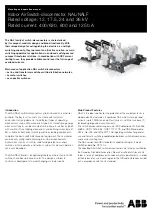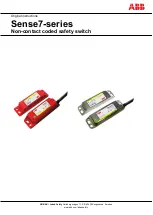
Small Office Remote Access Switch 233
C
ONFIGURING
A
DVANCED
IP R
OUTING
IP Filters
EQ
equal to <port>
NEQ
not equal to <port>
LT
less than <port>
GT
greater than <port>
RANGE
inclusive range <port1> <= packet port value> = <port2>
Examples:
EQ 23:
TCP port for the Telnet protocol.
RANGE 0 65535:Any TCP port (wild card and default).
TCP C
ONTROL
This element accesses the control bits of the TCP header, which are utilized to initiate and maintain
the state of a TCP connection. “ANY” is the wild card and default value. TCP packets whose ACK
or RST control bits are set will match the ESTABLISHED value, since they belong to an established
connection. Conversely, a TCP packet which is attempting to open a new connection will carry
neither of these bits and will match the NOT-ESTABLISHED value.
ICMP T
YPE
AND
C
ODE
These fields allow filtering based on the specific function of an ICMP packet, via the Type and Code
fields. Using an operator of EQUAL or NOT EQUAL, the packet’s Type/Code is compared against
the target values. These values may be a numeric quantity between 0 and 255; or the mnemonic
“ANY” can be used with an EQUAL comparison as the wild card value.
IP F
ILTERS
B
ACKGROUND
I
NFORMATION
A filter is a list of conditions. It is the logical element which is applied to a point in the routing
process to control packet flow. Each condition within a filter is created from one of the previously-
defined packet types, along with the action to take when a packet matches that type.
IP Filters modify the normal processing flow of an IP packet as it passes through the various stages
of IP Processing. When an IP packet encounters a filter, the filter’s output - DISCARD or
FORWARD - determines if the packet has permission to continue. There are two types of IP Filters.
Forwarding Filters
are selectively applied to the key locations in the IP routing process. The
Connection Filter
is applied to those datagrams which trigger a WAN connection in order to satisfy
the forwarding process.
The following illustrates a packet that is passing through a filter. The packet is checked against each
of the individual conditions of the filter before an action is performed:
















































